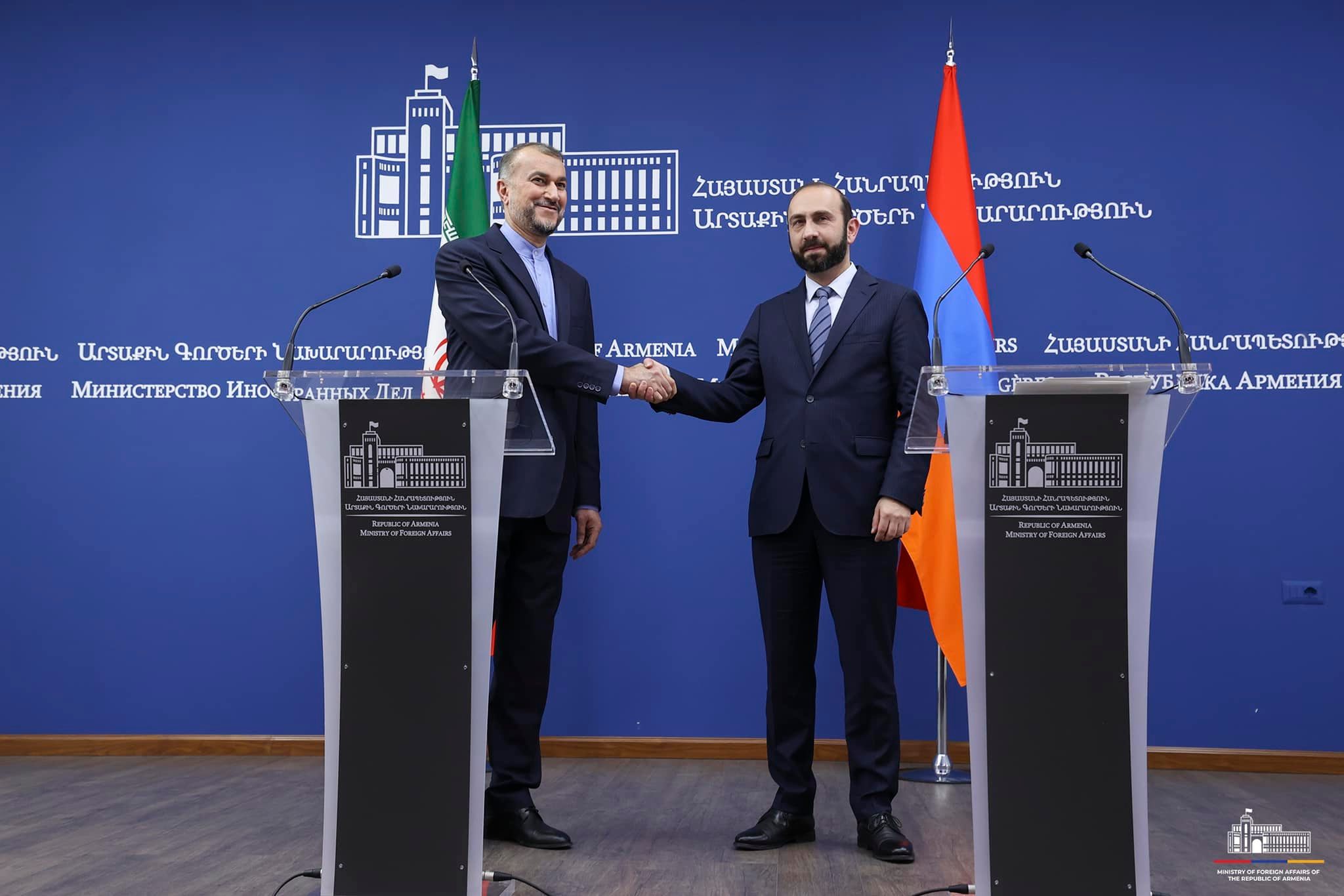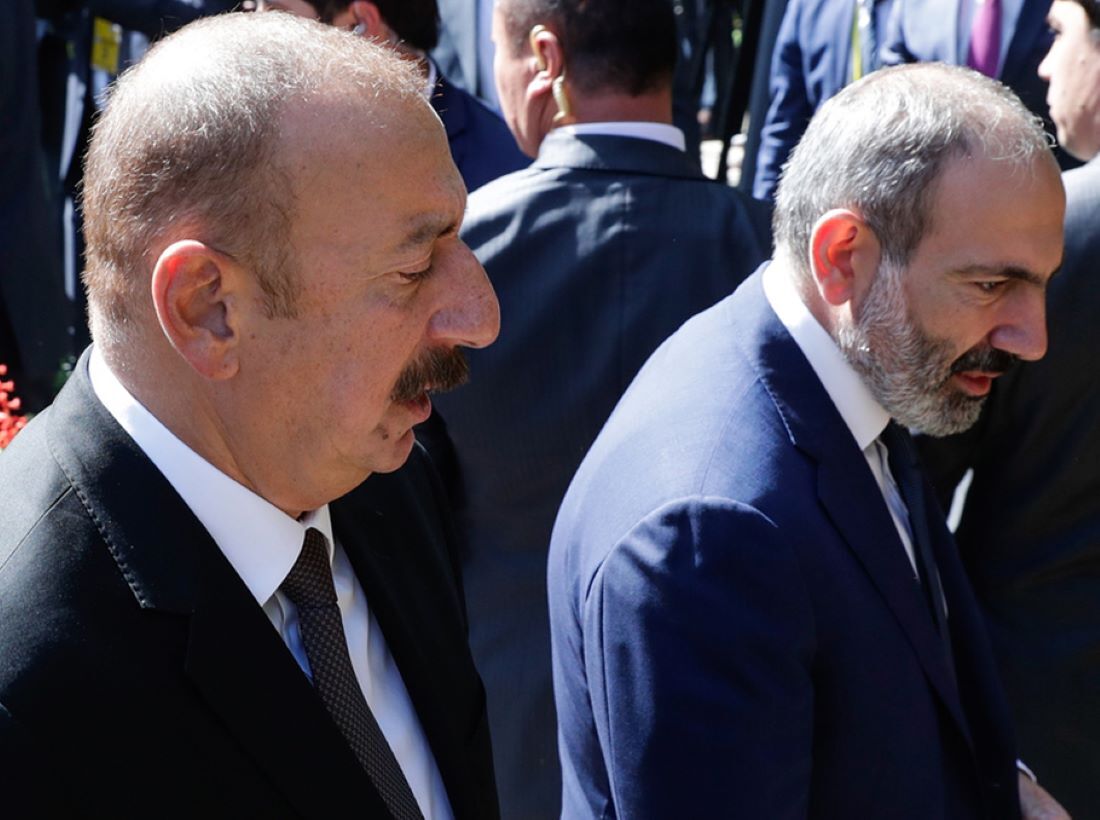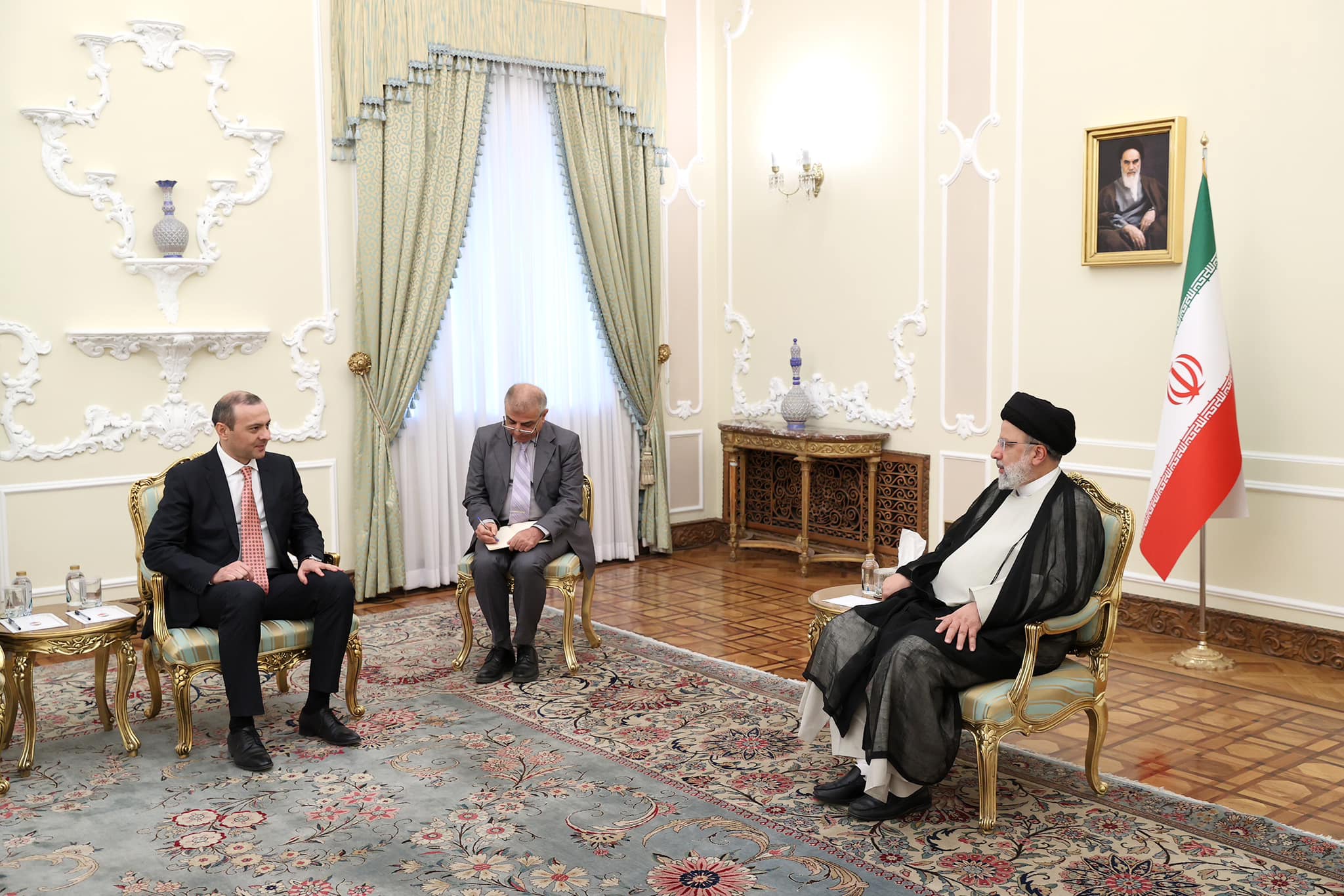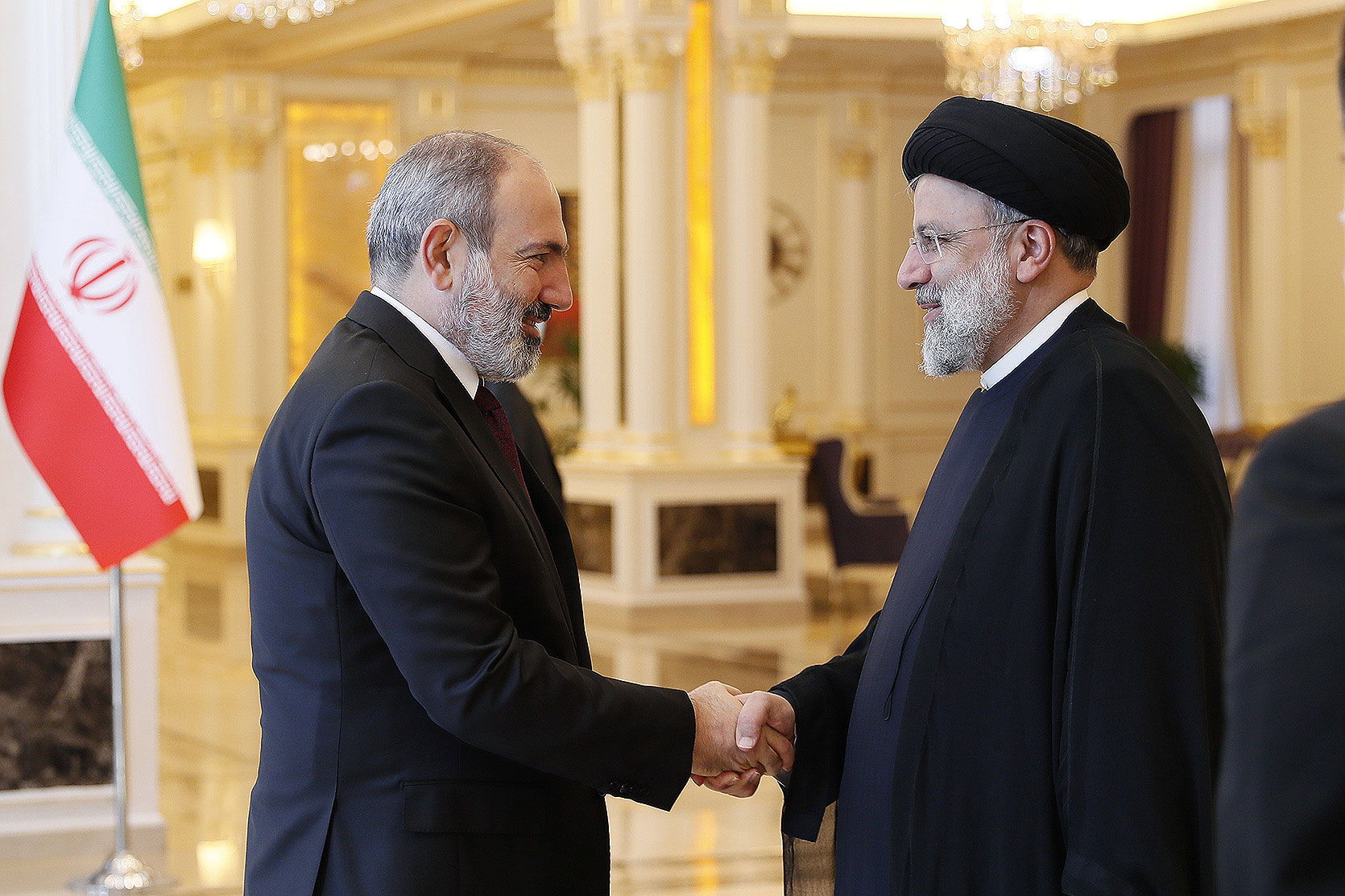"Contradictions between Russia and Iran on the 'corridor' issue are obvious": Opinion from Yerevan
Tensions between Russia and Iran
“The open support from the Russian foreign minister for the demand of the ‘Zangezur Corridor,’ put forward by Baku and Ankara, surprised many who did not expect Russia to disregard Iran’s stance on this issue, especially as Iran had repeatedly declared it a red line,” writes the Tehran Times, a newspaper close to Iranian security circles.
The publication quotes an assessment from South Caucasus expert Salar Seifodin, who noted that Moscow had “so far maintained an ambiguous position” on the matter, but is now “trying to appease Azerbaijan by supporting the corridor project, which could become a vital route for energy exports to Europe.”
The “Zangezur Corridor” could also offer a strategic advantage to Israel by providing an opportunity to “encircle” Iran and exploit vulnerabilities along the country’s borders, warns the Iranian political analyst. He believes that Iran is prepared to oppose the “Zangezur Corridor,” even to the point of military intervention if necessary.
Iran’s readiness for a decisive response was demonstrated back in 2022, when Azerbaijan’s armed forces attacked Armenia’s eastern borders and advanced into its sovereign territory, recalls political analyst Areg Kochinyan. He suggests that if Baku makes a similar move again, Tehran’s reaction will be the same:
“When Azerbaijan began its offensive and approached the city of Jermuk, Iran launched large-scale military exercises, deploying up to 100,000 personnel to the border with Azerbaijan. These exercises were certainly a deterrent.”
Azerbaijani authorities refer to the “Zangezur Corridor” as a road through Armenia to connect with their exclave, Nakhchivan. Armenia’s leadership has repeatedly stated its willingness to open all communication routes but without losing control over its territory, which the term “corridor” implies.
Recently, Russia’s foreign minister accused Armenia of “sabotaging” the agreement to unblock infrastructure. In response, Armenia’s Foreign Ministry stated that it no longer reacts to “unfounded, clearly biased, and often disrespectful comments from various Russian Foreign Ministry officials about Armenia.” However, they deemed it necessary to emphasize that Lavrov’s statement does not reflect reality.
The ministry also pointed out that none of the provisions of the agreement referenced by the Russian minister have been fulfilled by the other parties, including Moscow. It reaffirmed that regional communication routes could be opened by Armenia “at any moment” under its “Crossroads of the World” project.
- “Baku promised Moscow to delay signing the agreement with Armenia” – Opinion from Yerevan
- Yerevan and Baku to exclude one contentious issue from the peace agreement. What’s next?
- “Each side waits for a deus ex machina to solve their conflict on their terms.” Interview with EU Special Representative Toivo Klaar
Russia and Azerbaijan advised to “respect borders”
Iranian Parliament Vice-Speaker Ali Nikzad recently addressed Azerbaijan and Turkey’s demand for the “Zangezur Corridor” and the support Moscow has provided them. He stated that Iran’s strategic policy regarding borders is clear and based on national interests:
“We are against changing borders. My advice to Russia and Azerbaijan is to respect borders.“
According to Ali Nikzad, Iran communicated this stance to its Azerbaijani counterparts during a recent meeting.
Tensions between Russia and Iran
“Zangezur Corridor” – a false demand?
Chairman of the Iranian Parliament’s National Security and Foreign Policy Committee, Ebrahim Azizi, called the demand for the “Zangezur Corridor” false:
“In reality, this demand promotes projects aimed at reducing Iran’s military and political influence in the region.“
Ebrahim Azizi believes the geopolitical developments surrounding the “corridor” do not align with the interests of regional countries, adding:
“Iran is firmly opposed to this. Those harboring such illusions are warned that the consequences will be severe and costly.”
He stressed that while Tehran does not seek to create tension in the region, it will defend itself with a “serious and decisive” response if its territorial integrity is threatened.
Tensions between Russia and Iran
“Illusions about the ‘corridor’ will never materialize”
Iran’s Ambassador to Armenia, Mehdi Sobhani, also commented on the unblocking of regional communications, reaffirming Tehran’s official stance: “All actions must follow the principles of national and state sovereignty.”
“Illusions about the ‘corridor’ will never materialize,” he stated.
When asked about the possibility of third-party control over the roads, Sobhani expressed Iran’s support for Armenia’s position on the matter:
“We believe absolute control should remain with the Armenian government, under the country’s sovereignty. This is the 21st century, not the 19th, and nations exercise their independence and sovereignty accordingly.”
Pashinyan: “Armenia responsible for ensuring security”
“Recently, a senior Russian official claimed that the November 9 trilateral statement allegedly states that Russian FSB border troops are responsible for securing transport links between mainland Azerbaijan and Nakhchivan. I want to clarify that this is not written in the statement,” said the Armenian prime minister.
Pashinyan reiterated that the document explicitly states: “The Republic of Armenia ensures transportation between the western regions of Azerbaijan and the Nakhchivan Autonomous Republic.”
He emphasized that the 9th point of the November 9 statement pertains to unblocking all regional communications. He added that taking statements out of context undermines the process:
“The government of Armenia has publicly and officially presented the ‘Crossroads of Peace’ project. If someone opposes this project, they must explain why.”
During his latest press conference, Pashinyan mentioned for the first time the possibility of transferring security functions for communications to a private organization, though he provided no details. He noted that this idea is viewed positively in both Baku and Moscow.
Later, deputy foreign minister Mnatsakan Safaryan told journalists that there is no clarity yet regarding which organization is being considered. However, he assured that Armenian customs and border officials would oversee the road alongside the private organization.
Commentary
Disagreements between Russia and Iran over the “Zangezur Corridor” have long existed, says Areg Kochinyan, head of the Security Policy Research Center. However, the issue is no longer confined to diplomatic discussions. According to him, “this is now an open debate because Russia has started speaking publicly on the matter.”
“For Iran, it is unacceptable to unblock a road from Azerbaijan to Nakhchivan through Armenia under the control of Russia, Turkey, Azerbaijan, or any other country,” Kochinyan says.
He believes that Iran is not particularly in favor of unblocking the road under Armenian control either, as it would serve as an alternative to the current route through Iran. Reflecting on Russian Foreign Minister Sergey Lavrov’s comments on agreements to unblock communications, Kochinyan describes it as a “serious failure” of the Russian Foreign Ministry:
“As a result of their careless and shortsighted statements, they’ve created yet another crisis in the South Caucasus.
From Iran’s perspective, two main problems arise with unblocking the road:
- It would significantly weaken the uninterrupted link between Armenia and Iran.
- It would become a powerful tool for Azerbaijan and Turkey to bypass Iran’s interests.
Currently, Turkey and Azerbaijan rely heavily on the road through Iran to connect Nakhchivan with mainland Azerbaijan”.
Kochinyan believes that Iran would not oppose involving a private company to manage the road, emphasizing that this does not violate the principle of sovereignty or territorial integrity. Instead, it provides “additional security guarantees,” as Armenia would retain full customs, passport, and road control.
However, he points out one current problem: Baku does not agree to reciprocity:
“If Armenia has a road with additional security guarantees, there should be something similar in Azerbaijan. For instance, there should be a route from Yerevan to Meghri through Nakhchivan, which would be two to three times shorter than the existing roads through Vayots Dzor and Syunik in Armenia.”
Tensions between Russia and Iran






















